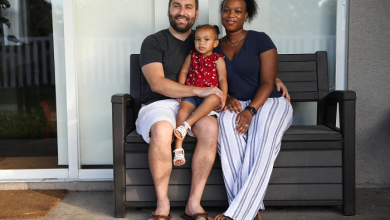Guide to Get Canada Visa by Marriage – Live in Canada
For those seeking to make Canada their home through marriage, there are specific pathways to obtaining a visa. This guide explores six ways you can secure a Canadian visa by marriage, providing clarity on the processes and requirements involved.
Marriage can serve as a basis for a visa application, but it is essential to understand the steps, obligations, and opportunities available. These avenues are designed to ensure genuine relationships are recognized while safeguarding the integrity of Canada’s immigration system.
Spousal Sponsorship Program
The Spousal Sponsorship Program is one of the most common ways to obtain a Canadian visa through marriage. Under this program, a Canadian citizen or permanent resident can sponsor their spouse or common-law partner to become a permanent resident of Canada. This program emphasizes family reunification, and the application can be made whether the spouse lives inside or outside of Canada.
To qualify, the relationship must be genuine, and both partners must meet eligibility requirements. Proof of a legally recognized marriage, cohabitation, or common-law status is essential. The sponsor must demonstrate financial stability to support their spouse without requiring social assistance from the Canadian government. The processing times vary but typically take about 12 months.
Conjugal Partner Sponsorship
For those in a committed relationship but unable to marry or live together due to exceptional circumstances, the Conjugal Partner Sponsorship option may be viable. This program recognizes situations such as legal or cultural barriers preventing marriage or cohabitation.
The sponsor must show that their relationship is genuine, continuous for at least 12 months, and has significant commitment akin to marriage. Documentation proving shared financial responsibilities, communication, and mutual decision-making is often required. This pathway allows the sponsored partner to apply for permanent residency even without a formal marriage, provided the couple can justify their inability to marry or cohabit.
Marriage Visitor Visa
For individuals planning to marry a Canadian citizen or permanent resident in Canada, applying for a Marriage Visitor Visa may be an initial step. This visa allows the foreign national to enter Canada for the purpose of marriage.
Although the Marriage Visitor Visa does not directly grant permanent residency, it facilitates the process by enabling couples to unite and formalize their relationship. After marriage, the Canadian spouse can initiate the Spousal Sponsorship process. It is crucial to prove the temporary nature of the visit and demonstrate strong ties to the applicant’s home country to ensure the visa’s approval.
Inside Canada Sponsorship (Spouse or Common-Law Partner in Canada Class)
For spouses already living in Canada with valid temporary status (e.g., as a student, worker, or visitor), the Inside Canada Sponsorship pathway allows them to apply for permanent residency while remaining in the country. This option is particularly appealing for couples who wish to stay together during the application process.
Applicants under this category may also qualify for an Open Work Permit, enabling them to work legally in Canada while awaiting a decision on their sponsorship application. Proof of cohabitation, shared financial commitments, and genuine relationship documentation is critical for success in this process.
DISCOVER – 8 Ways to Legally Relocate to Canada – Live in Canada
Provincial Nominee Programs (PNPs) for Spouses
Several provinces in Canada offer Provincial Nominee Programs (PNPs) that prioritize family reunification, including spousal sponsorship. If your Canadian spouse resides in a province participating in a PNP, they can nominate you for permanent residency through the family sponsorship stream.
These programs are tailored to specific provincial requirements and priorities, so eligibility criteria and application processes may vary. For instance, provinces like Manitoba and Saskatchewan actively support family reunification through their immigration programs. PNPs can expedite the pathway to permanent residency for spouses and offer additional support to integrate into the local community.
Humanitarian and Compassionate Grounds
In rare cases where other sponsorship pathways are not applicable, applying for permanent residency based on Humanitarian and Compassionate (H&C) grounds may be considered. This avenue is designed for exceptional circumstances, such as couples separated by conflict, natural disasters, or other barriers beyond their control.
Applicants must demonstrate significant hardship if required to leave Canada and compelling reasons for their case to be considered outside regular immigration rules. Evidence of a genuine relationship, integration into Canadian society, and strong community ties is essential for a successful application.
Final Thoughts
Securing a Canadian visa through marriage involves careful preparation, transparency, and compliance with legal requirements. Each pathway is designed to prioritize family unity while ensuring the integrity of the immigration system. Understanding which route best fits your circumstances is crucial to achieving your goal of reuniting with your spouse in Canada.



